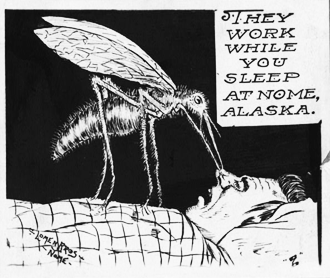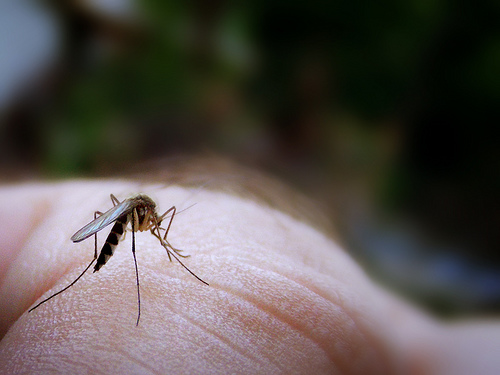
<a href="http://www.loc.gov/pictures/item/99614994/?sid=cf03681e9075baae5e50b94490289f32">Library of Congress</a>
Back in the 1950s, the World Health Organization initiated the Global Malaria Eradication Program, which successfully eradicated malaria in 25 countries. Interestingly enough, almost all of the countries that succeeded were islands or adjacent to countries that also eliminated malaria (the two exceptions were Israel and Chile). The lesson was a simple but important one: When it comes to disease control, it matters who your neighbors are.
Researchers at the University of Florida took this idea to heart in a study published this week in Proceedings of the National Academy of Sciences aimed at improving malaria elimination strategies. The underlying hypothesis of the study is that many national campaigns fail to eradicate malaria because they try to do so only within their national boundaries—borders drawn by colonialism, war, natural resources, and treaties. The borders of malaria, on the other hand, are determined by factors like climate, mosquitoes, and human migration. So the researchers analyzed migration patterns, malaria transmission maps, and global population data in order to determine the natural boundaries for malaria endemics in different regions of the world.
What they found was that in many cases, malaria-stricken countries occur in pockets linked together by high levels of cross-border migration. Take the case of West Africa, where migration between countries is high: in order to eradicate malaria in Ghana, you’d have to tackle it in Mali, Burkina Faso, and Côte d’Ivoire as well—otherwise the countries will just keep reinfecting one another. The study also found that in certain places like Madagascar, for example, the disease is contained within the country’s borders and not linked to any larger group of nations. What this means is that in Ghana, a national campaign to eradicate malaria is likely to fail, but in Madagascar it stands a better chance. That sort of distinction is good to keep in mind for the world’s 107 malaria-endemic countries—and for the 34 of them currently pursuing malaria eradication campaigns, it might be time to get to know the neighbors.






